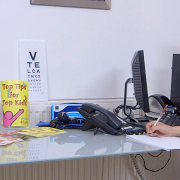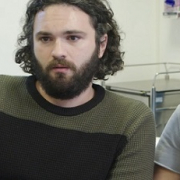Building trust in genomic medicine
‘Genomics’ is a buzzword for clinicians, but what efforts are being made to engage the public?
The 100,000 Genomes Project aims to create a new genomic medicine service within the NHS, and to enable medical research that will be fundamental to benefit future patients and support the UK genomics industry as a global leader. Success will hinge on earning and retaining the trust of project participants (patients and their families) and ultimately also of the wider public.
Unsurprisingly, close engagement with patients considering and recruited to the project has been a feature from the earliest stages, and continues to be so via the Participant Panel. However, understanding and addressing public understanding of, hopes for and concerns relating to the project has also been important – not least because whilst the potential benefits are usually clear to participants, this might not be the case for the wider public.
A two-way conversation
Over the last year, Genomics England has conducted a series of engagement exercises with the public and other important stakeholder groups, because, as Head of Engagement Vivienne Parry explained: “we need the wider public to be comfortable that the issues raised have been debated and, where necessary, addressed.”
The Genomic Conversation 2016 was intended to facilitate active engagement with different audiences. Delivery partners included the British Science Association (BSA), Science Museum, University of the Third Age, PHG Foundation and Verge magazine. Conversation events and exercises engaged audiences across England including young and old, people with and without genomic knowledge, and ranging from health professionals to politicians and the public. The findings are summarised in an overview document.
Public concerns about data sharing
BSA research identified important topics relating to genomic data sharing for conversations with the general public, whilst the Genetic Alliance led consultation with the rare disease patient community (as well as project participants) on the same issues. The BSA ran a series of debates across England focused on genomic data privacy, after which audience members were asked to rate their willingness to share their own genomic data with different organisations: universities, the NHS, pharmaceutical companies and insurance companies.
An overwhelming 95% of public respondents said they would be unhappy to share their data with insurance companies, but over two-thirds were happy to share with academics (72%) or the NHS (66.9%). Opinion was split on pharmaceutical companies, with 36.1% happy and 36.4% unhappy to share their data.
Patients and participants, in contrast, were generally happier about sharing data with the pharmaceutical industry, though concerns were still expressed, and they had similarly negative views on access by insurers. The NHS was essentially trusted with genomic data (only 7.6% were worried about privacy and anonymity) though a quarter queried the capacity to integrate genomics.
Next steps
Genomics England now has a clearer idea of the most pressing public and patient concerns that need to be understood and addressed. They note that commercial access to genomic data remains ‘critically important if new medicines and treatments are to be developed’, and so plan to work with the industry and other partners to build understanding and trust in this area. They also plan fresh engagement with cancer patients, since this group has joined the Project more recently than those with rare diseases and may have differing hopes and fears.
–









